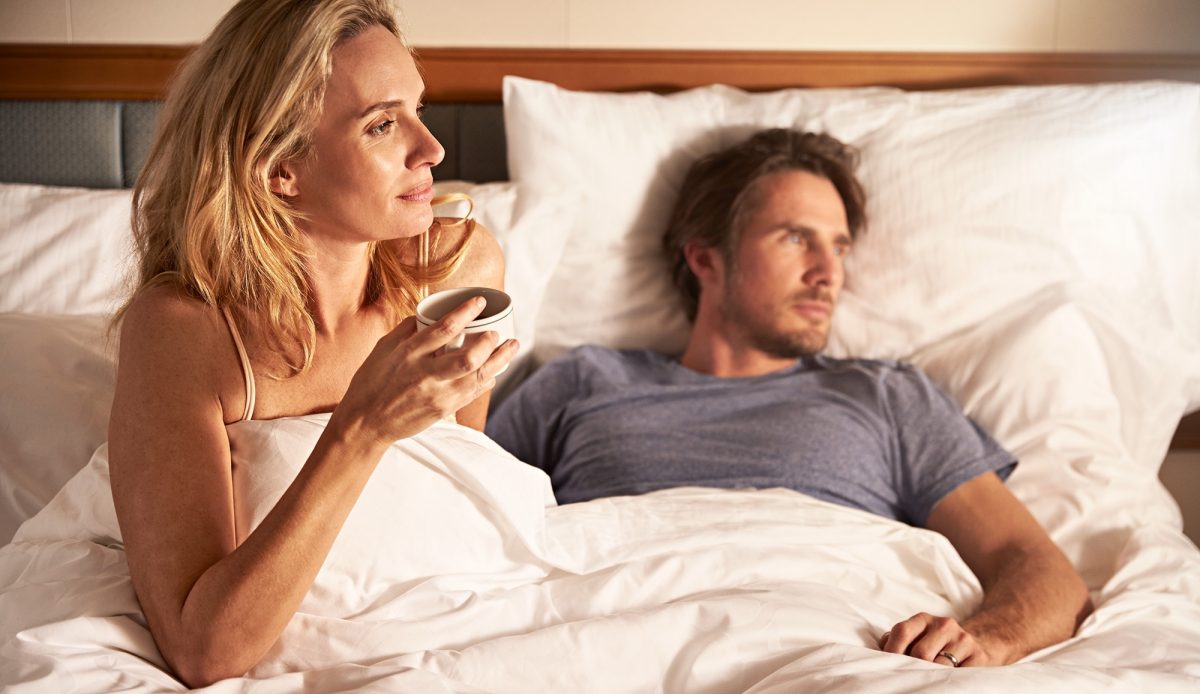
Princess
Seven sleeping tips from expert Dr. Breus
Struggling to get a good night's rest? The Sleep Doctor is here to help
At Princess, we take sleep very seriously. We know that sleep is a vital component to staying healthy and it helps your immune system run as efficiently as possible. Sleep improves the production of T cells, the white blood cells that play a critical part in our immune system's response to viruses. Put simply, the immune system's response is improved by good sleep.

Dr. Michael Breus alongside one our award-winning, luxury beds © Princess
The Princess Luxury Bed, our award-winning stateroom bed, was developed with sleep expert Dr. Michael Breus (known as the Sleep Doctor), who is a clinical psychologist and both a Diplomate of the American Board of Sleep Medicine and a Fellow of The American Academy of Sleep Medicine. Dr. Breus has also written numerous books on getting better sleep, including The Sleep Doctor's Diet Plan: Lose Weight Through Better Sleep.
During the current pandemic, when our routines have been changed, our stress levels unusually high and our immune systems possibly compromised, Dr. Breus shares his advice on getting the best possible rest.
His tips for sleeping well include reducing blue-light exposure at night, practising pre-bedtime meditation and compiling a mental gratitude list each evening – all of which are useful when at home, on holiday or travelling, too. Discover his seven tips for a good night's sleep in the video or the steps below.
Dr. Breus' seven steps to getting a good night's sleep

1. Set an electronics curfew
Stop using your smartphone, tablet, TV or computer about 90 minutes before trying to get to sleep. This will allow the mind to fully wind down in preparation for sleeping.
2. Meditate
Before going to sleep, try meditation exercises or breathing exercises, which help relax the mind and slow breathing – both of which will help prepare you for a good night's sleep.
3. Compile a gratitude list
When lying in bed, try to focus on positive thoughts (stressful thoughts lead to anxiety). While lying in the dark, mentally compile a list of all the things you're thankful for in your life. Thinking positively will help relax the mind and body, promote deep sleep and is also more likely to lead to positive dreams.
4. Be consistent
Stay on a consistent sleep schedule by going to bed and waking up at roughly the same time, even at weekends. This will help your body fall into a routine and function better.
5. Reduce caffeine and alcohol intake
If you're feeling stressed, caffeine may exacerbate the effects of this, and while alcohol can make you feel sleepy, it actually reduces the chance of deep, quality sleep. Dr. Breus suggests stopping your caffeine intake by 2pm each day and your alcohol intake around three hours before bedtime.
6. Have a hot shower
Take a hot shower or bath about 90 minutes before going to bed. Your core body temperature will heat up and then reduce towards bedtime, naturally producing melatonin – the hormone that regulates the sleep–wake cycle.
7. Keep your bedroom clean and tidy
Make sure your bedroom is as inviting as possible. Keep the space clean, change your bedsheets often and also remove clutter. This will help create a relaxing space in which you'll be able to enjoy a good night's sleep.
If you want to hear more from Dr. Breus, watch him share his tips on choosing the right mattress for better sleep...

Excited to try our award-winning stateroom bed?
Read more of our wellness features
-

How to sleep well on holiday
A whopping 70% of us sleep worse on holiday than at home
-

How cruise crew avoid jet lag
We asked Princess Cruises crew members and a handful of health experts to share their secrets for beating jet lag
-

Five ways to stay fit onboard a cruise
From high tech gyms and top deck running tracks to exercise cards you can pack in your suitcase
